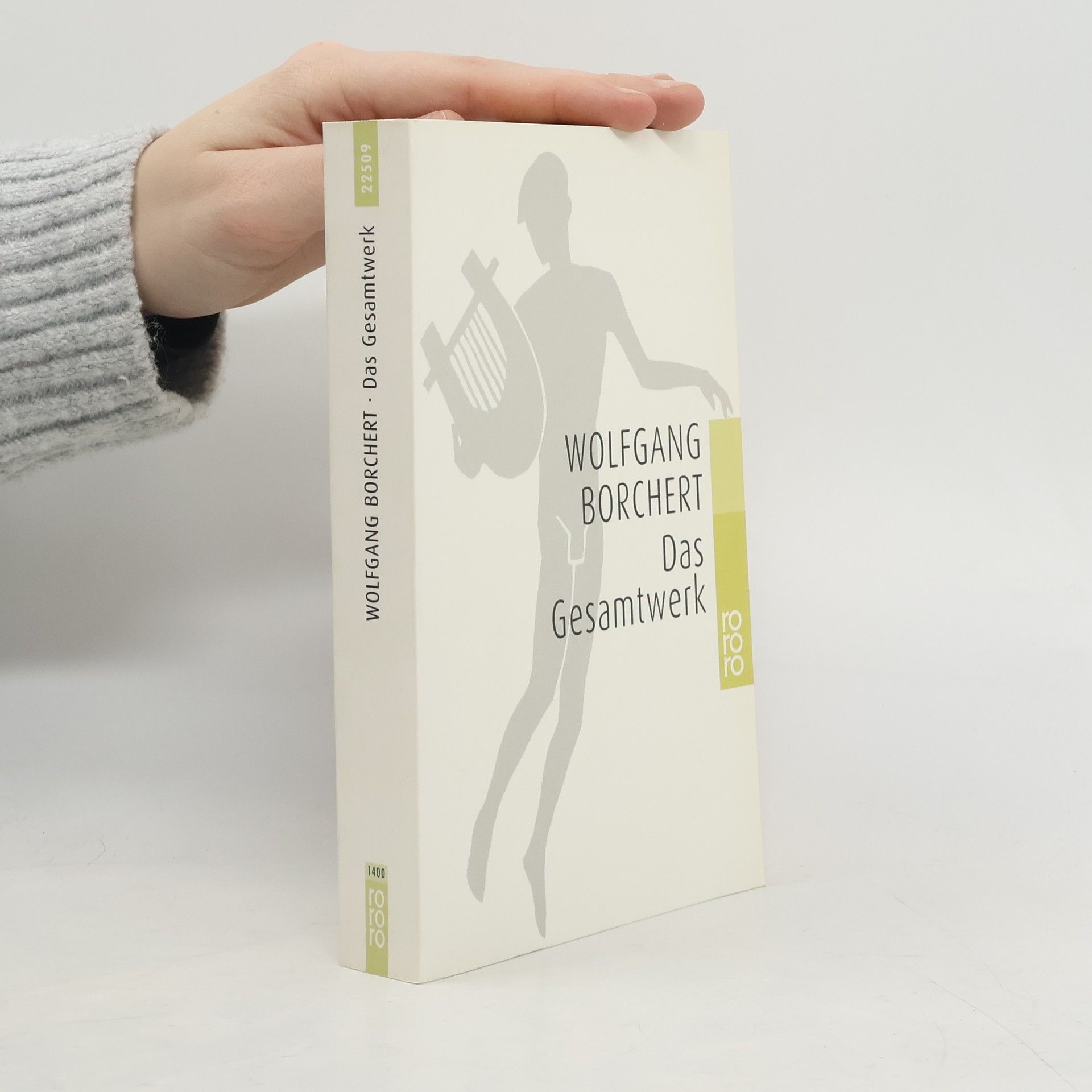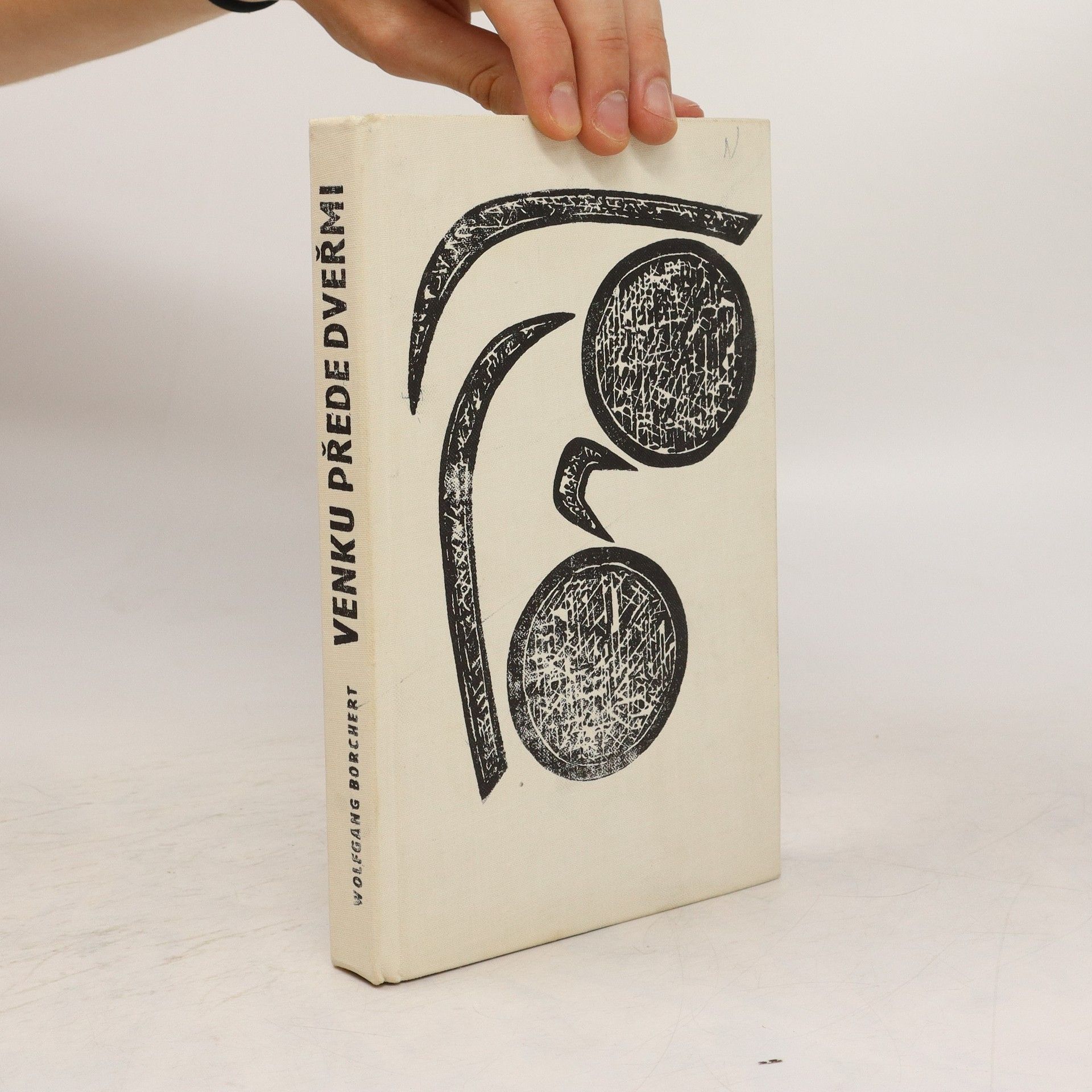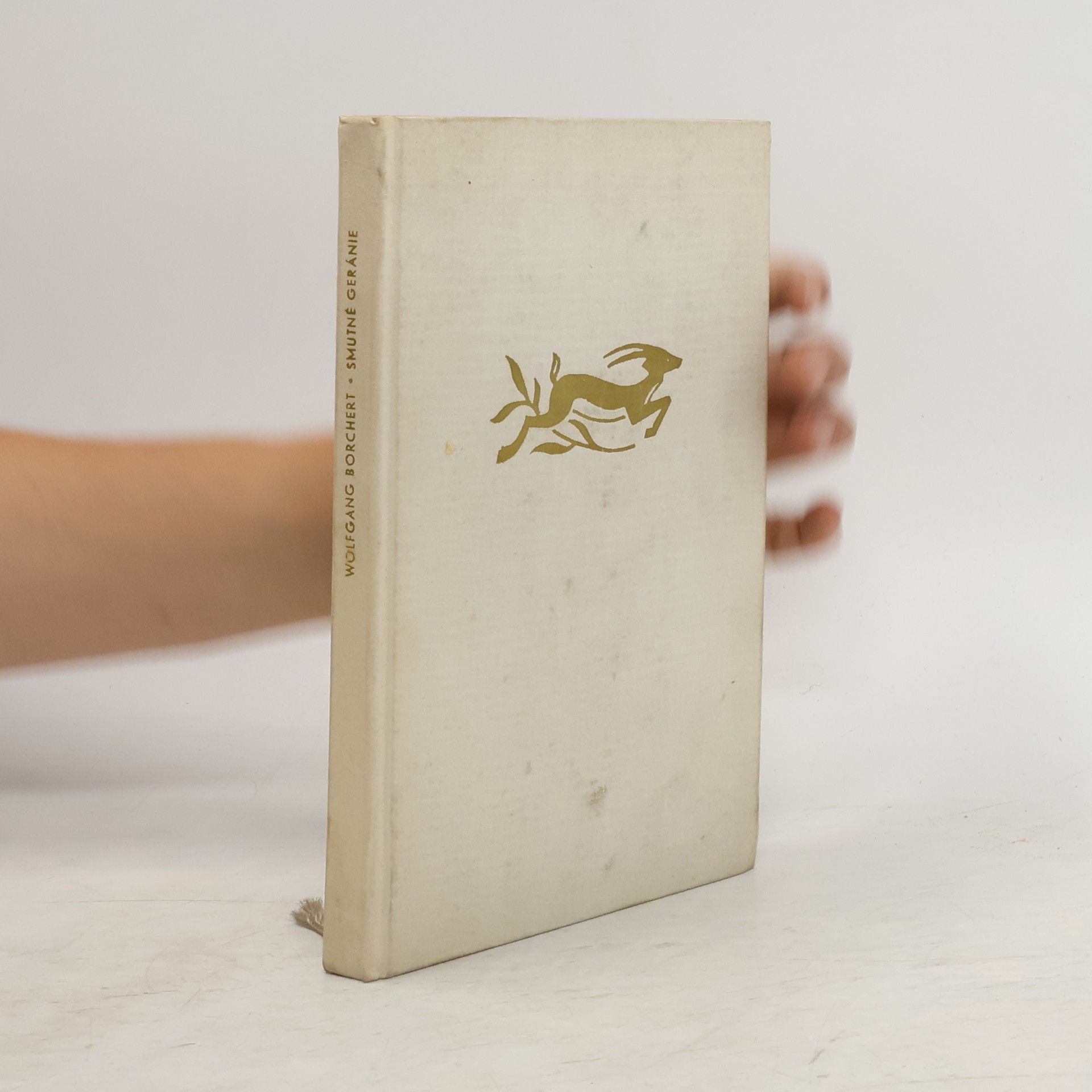Wolfgang Borchert Knihy
Nemecký autor a dramatik, ktorého dielo bolo ovplyvnené skúsenosťou s diktatúrou a službou vo Wehrmachte počas druhej svetovej vojny. Jeho tvorba patrí k najlepším príkladom hnutia Trümmerliteratur v povojnovom Nemecku. Vo svojej tvorbe nekompromisne obhajuje otázky ľudskosti a humanizmu, hoci sa vyhýba biografickým detailom. Je jedným z najpopulárnejších autorov nemeckého povojnového obdobia, ktorého diela sú dodnes často vyučované na nemeckých školách.







Výbor z díla vynikajícího, předčasně zemřelého němec. spisovatele. Celé dílo je protestem proti fašismu, válce, obhajobou a oslavou prostých věcí života. Výbor obsahuje kromě povídek i rozhlasovou hru "Venku přede dveřmi", která je myšlenkově i výrazově syntézou a vyvrcholením Borchertovy tvorby.
Soubor próz autora, jehož tvorba zahrnovala dvě životní zkušenosti. První je povětšině zkušenost mladíka hýčkaného pevnou vírou ve svůj talent, o novější rozkladnou zkušenost se postarala válka a její důsledky a následky. Borchert vytvořil paradox návratu z války. Návrat domů je krutá iluze. Domovem navrátilce je ulice, kde sedává se sobě podobnými na zábradlích nebo se opírá o trosky zdí. Z včerejšího vojáka se stává bezdomovec.
Vzpomínky na vlastní válečné prožitky i na příběhy dvou jeho druhů tvoří náplň povídek nadějného, předčasně zesnulého šestadvacetiletého německého básníka, jemuž hitlerovský režim tak podlomil zdraví, že dva rokypoválcezemřel.Celé dílo je dokladem neutěšitelného hladu autorapo klidném životě a duševního i citového rozpoložení mladé poctivé německé generace.
The Man Outside
- 257 stránok
- 9 hodin čítania
Wolfgang Borchert died in 1947––the twenty-six-year-old victim of a malaria-like fever contracted during World War II. This was just one day after the premier of his play, The Man Outside, which caused an immediate furor throughout his native Germany with its youthful, indeed revolutionary, vision against war and the dehumanizing effects of the police state. In a very real sense, Borchert was both the moral and physical victim of the Third Reich and the Nazi war machine. As a Wehrmacht conscript, he twice served on the Russian front, where he was wounded, and twice was imprisoned for his outspokenness. His voice speaks plainly and powerfully from out of the war’s carnage all the more poignantly for its being cut short at so young an age.
Geboren am 20.5.1921. Borchert war zunächst Buchhändler und Schauspieler. 1941 wurde er als Soldat an die Ostfront verlegt; zwei Mal wurde er wegen „Zersetzung“ zu Haftstrafen verurteilt. Als er 1945 nach Hamburg zurückkam, war er bereits schwerkrank. Am 20. 11. 1947 starb er, gerade 26 Jahre alt, in Basel. Wie kein anderer artikulierte er in seinen von Melancholie durchzogenen Gedichten und Erzählungen die Bitterkeit und Trauer einer „verratenen Generation“. Die Erzählung „Die Hundeblume“ machte ihn mit einem Schlag berühmt: In ihr ist das traumatische Erlebnis der Gefangenschaft auf eine immer neu variierte Situation reduziert: den täglichen Hofgang der Gefangenen. Seinen größten Erfolg erzielte er mit seinem in ungeheurer Intensität gehaltenen Drama „Draußen vor der Tür“, das, zunächst als Hörspiel gesendet, einen Tag nach seinem Tod in den Hamburger Kammerspielen uraufgeführt wurde. Wolfgang Borchert gilt als Repräsentant der sog. „Trümmerliteratur“ und Wegbereiter der Nachkriegsliteratur. Michael Töteberg, geboren 1951 in Hamburg, war langjähriger Leiter der Medienagentur im Rowohlt Verlag.
Die Hundeblume,
- 124 stránok
- 5 hodin čítania
Die Hundeblume - Erzählungen - bk1211; Rowohlt Verlag; Wolfgang Borchert; pocket_book; 1996
Wolfgang Borchert, Sämtliche Werke
Draußen vor der Tür, Nachts schlafen die Ratten doch u.a. Alle Texte der ersten Gesamtausgabe, weitere Gedichte & Erzählungen aus Nachlass und verstreuten Quellen
Das Werk von Wolfgang Borchert ist schmal, aber reich an Schöpfergeist. Entstanden in Kriegstrümmern, erzählt es auf einzigartige Weise von Verlust und Hoffnung, von liebenden und leidenden Menschen in einer zutiefst unsicher gewordenen Welt. Berühmt wurde Borchert nach seinem frühen Tod mit dem Heimkehrer-Drama Draußen vor der Tür. Zudem schrieb er zahlreiche Erzählungen, die dieser Band ebenso umfasst wie seine berückenden Gedichte.
"An diesem Dienstag erschien 1947 kurz nach dem Tod Wolfgang Borcherts und versammelt außergewöhnliche Erzählungen, die heute als Klassiker einen festen Platz im Kanon der Nachkriegsliteratur haben." Redaktion Gröls-Verlag (Edition Werke der Weltliteratur)
Schischyphusch
- 64 stránok
- 3 hodiny čítania
Der Onkel groß, laut, reich, satt; der Kellner klein, blass, verbittert, verängstigt. Was die beiden Männer eint, ist ihr Sprachfehler. An einem sonnigen Sommertag geraten sie in einem Gartenlokal aneinander, jeder glaubt, vom anderen nachgeäfft und verhöhnt zu werden. Der selbstbewusste Onkel ist empört über das frevelhafte Verhalten des Kellners, der Kellner nimmt die Demütigung hin, so wie er es schon sein ganzes Leben lang gewohnt ist, und der Erzähler wird Zeuge einer Begegnung zweier Welten. Am Ende hat der Kellner einen Freund fürs Leben gefunden. Wolfgang Borcherts wohl rührendste Erzählung, liebevoll illustriert von Birgit Schössow.


